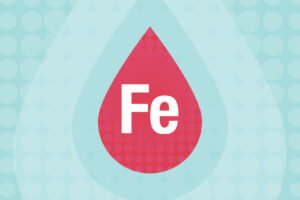As New Jerseyans start down the road toward re-entry after a period of social distancing, many are wondering whether it is safe to return to the activities that once seemed commonplace, including seeking medical care. Physicians and health care experts say it is more than safe; it is critical to seek medical attention that you may have been putting off.
“Now that the number of COVID-19 cases in New Jersey continues to trend downward, all medical offices, hospitals, and testing facilities are taking extra precautions to keep patients safe. There’s no reason to delay care,” says Robert Pedowitz, DO, a board-certified family physician on staff at CentraState.
Safe, Prompt Emergency Care
The Emergency Department at CentraState Medical Center continues treating patients with a variety of ailments. The department has been reconfigured so that all rooms are private, and patients are screened for the virus upon arrival. The unit is thoroughly and frequently cleaned and sanitized, and all healthcare workers wear appropriate personal protective equipment (PPE), which they change after seeing each patient.
“We’ve taken every precaution to ensure that our ER is safe,” says Jeremy Dayner, MD, chair of the emergency department. “It’s safer than going to the grocery store.”
If you are experiencing chest pain or numbness, weakness, or are having trouble speaking, go to the Emergency Department immediately or call 911. These could be symptoms of serious conditions. For other types of ailments, call your primary care physician, who will schedule the appropriate appointment and order the necessary treatment for you. If your condition worsens or if you wish to be seen by a healthcare provider in person, the staff of the emergency department stands ready.
“Delaying care can make you much sicker,” Dr. Dayner explains. “We’ve seen patients who had a heart attack or a stroke but didn’t want to come to the hospital. When someone doesn’t get prompt care, our treatment options become limited. The sooner you get to the ER, the more likely we are able to help you.”
Continue Controlling Chronic Conditions
Putting off routine care for chronic health conditions, such as diabetes or hypertension, can lead to more serious outcomes down the road. Many CentraState physicians are accepting appointments to see patients for routine care, both in person and through telehealth services.
“As it becomes safer for easing up social distancing, there is no reason to delay routine preventive care,” explains Dr. Pedowitz. “By not focusing on yourself and going for recommended tests and exams, you can miss preventable illnesses and potential complications. If you’re not sure about which tests to get and when to schedule them, you should reach out to your physician to discuss your questions and concerns.”
Available tests and services include:
- The Star and Barry Tobias Health Awareness Center: Diabetes management and hypertension management, including education about taking your medication, improving your nutrition, and improving the quality of your sleep; free blood pressure and blood glucose screenings by appointment every Monday; and therapeutic counseling by a licensed clinical social worker in person or via telemedicine to work through concerns and develop new coping mechanisms
- Wound care, including diabetic foot care
- The Linda E. Cardinale Multiple Sclerosis Center
- Laboratory services, including regular testing for those on blood thinners
- Cardiac rehabilitation services
- Cardiac testing, including EKGs, stress tests, and other diagnostic tests
- Certain cancer screenings, including mammograms
- Rehab therapies (PT, OT, Speech)
More and more services are returning on a regular basis.
“This is not the time to postpone getting any diagnostic test that your doctor has ordered,” says Kim Simers, assistant vice president of integrative health at CentraState.
Even if you haven’t been diagnosed with a chronic disease, you still may be at risk for one. CentraState’s Star and Barry Tobias Health Awareness Center offers a variety of online wellness resources, including health coaching, stress management, smoking cessation, and weight management, to help you improve your health during this trying time.
“Starting to make changes with a health coach is a great way to ease yourself into a healthier lifestyle,” explains Maryellen Dykeman, RN, manager of community wellness at The Star and Barry Tobias Health Awareness Center at CentraState. “You can’t change your genetics but you can change your lifestyle.
Visit Live Life Well to view a selection of virtual wellness programs.
If Surgery Is Needed…
At the start of the pandemic locally, most surgeries that were not time-sensitive were suspended. And plans are now underway to begin offering elective procedures again. However, time-sensitive surgical procedures are still being performed, many on an outpatient or short-stay basis.
“We first make sure that all other non-surgical treatment options for the patient have been used,” explains CentraState’s Chief of Surgery Amit Kharod, MD. “We move forward with the procedure if it’s necessary for the patient and we’re sure we can do it safely.”
Every patient is checked for the symptoms of the virus and surveyed regarding potential exposure. All patients are given a mask to wear, and pre-op care is delivered individually, instead of in a room with other patients. All healthcare providers wear the appropriate required masks and PPE. Patients exhibiting symptoms of COVID-19 or at risk of having the virus have surgery in one of two reserved ORs, separate from non-positive patients. Loved ones of surgical patients are asked to adhere to social distancing rules and encouraged to wait in the hospital’s parking lot. If a complication arises and a patient needs more care than expected, he or she will stay overnight on a floor reserved for non-COVID patients.
Surgical procedures still being performed include:
- Cancer-related surgeries, including robotic colon, prostate, and lymph node surgeries
- Catheter placement and dialysis-related surgeries
- Orthopedic fracture repairs
- Surgical repairs of nerve damage due to spine issues
- Appendix and gall bladder removals
- Endoscopic surgeries
- Bowel resection and diverticulitis repair
- Corrective surgery for bleeding issues
- Tracheostomies
“We’re also performing emergent and urgent surgeries, meaning procedures to repair any condition that threatens a patient’s limb or life,” Dr. Kharod explains.
If you are experiencing severe pain, delaying care can lead to a prolonged hospital stay or a more severe treatment plan.
We Are Here to Care for You
Our key services also remain available, including:
- Rehabilitation Services, including Physical Therapy, Speech Therapy, and Occupational Therapy
- Bariatric surgery pre-op education and a bariatric surgery support group
- Labor and Delivery
- Radiology
- The Star and Barry Tobias Women’s Health Center
- Cancer services including medical oncology, radiation oncology, infusion center, and select cancer and health screenings, such as mammograms
“Undiagnosed conditions can become significant problems and previously diagnosed conditions may worsen without getting routine care aimed to keep you healthy,” explains Dr. Pedowitz. “Preventing cancer, heart disease, and diabetes-related problems are all avoidable complications of delaying care.”
If you don’t have a primary care physician, CentraState’s online Physician Directory can help you find one in your area.





